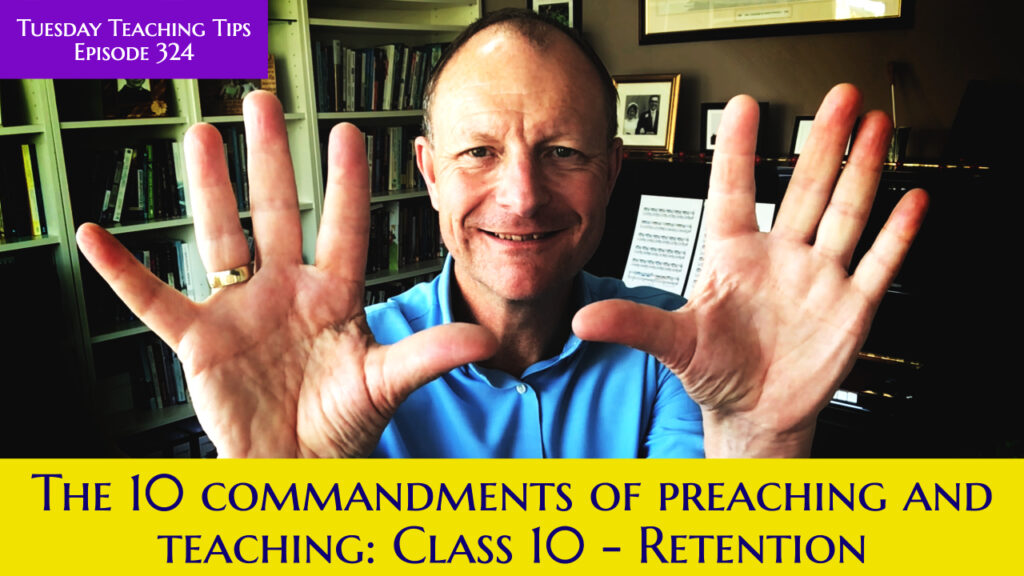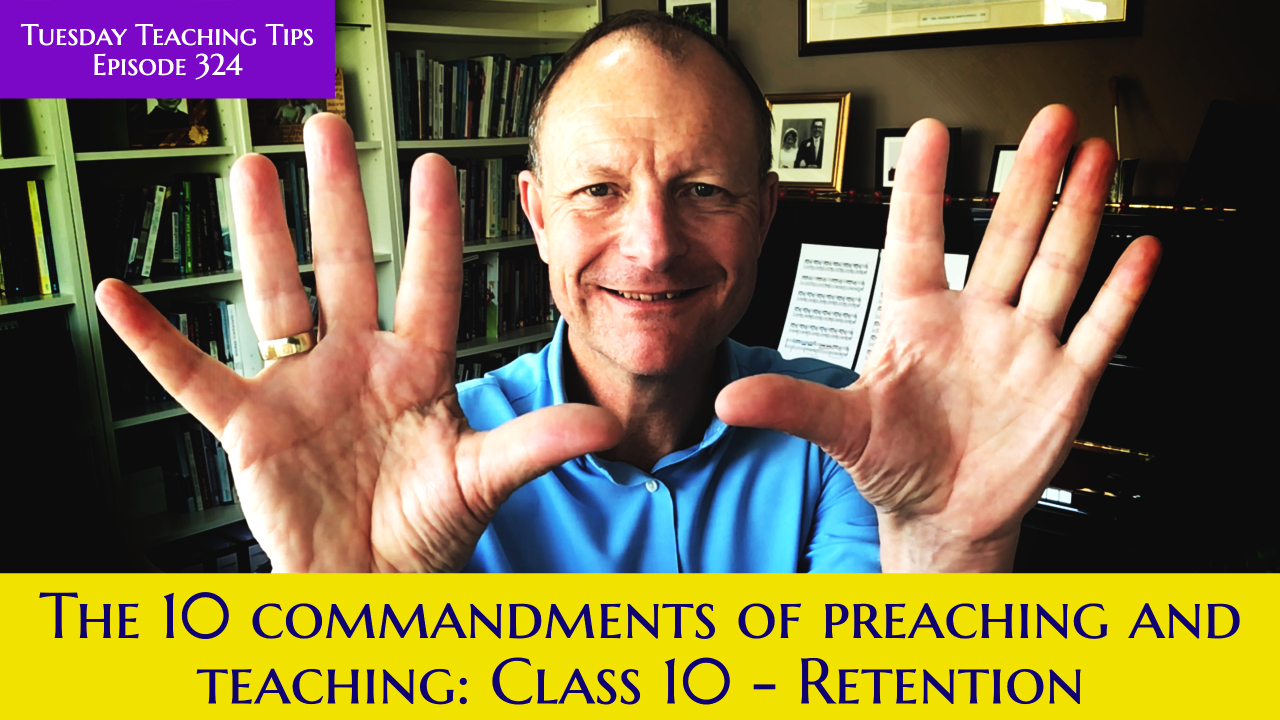9th Commandment: It doesn’t matter how well you taught it, it matters how well they learned it.

Introduction
Do you ever wonder if your teaching is effective? Do you sometimes sense your preaching might not have the impact you had hoped? If so, you are like 99% of the speakers I know. The other 1% are deluded.
“At Iconium Paul and Barnabas went as usual into the Jewish synagogue. There they spoke so effectively that a great number of Jews and Greeks believed.” (Acts 14:1 NIV11)
Point of clarification
We are limited in knowing how much our listeners learned. God does not give us miraculous insight into the mind and heart of each person who hears our teaching. We must trust that the Holy Spirit is at work. Our humility is tested in this. We are not in control. However, there are things we can do which will give people the best possible opportunity to learn.
Three Tips
- Ask Questions. You may have noticed that this tip comes up in several of the commandments. It is a crucial technique for helping people learn. It allows them to reflect on what they have heard and put it into their own words. Jesus did this. Sometimes it was to draw their attention to the obvious, “When I broke the five loaves for the five thousand, how many basketfuls of pieces did you pick up?” “Twelve” (Mark 8:19 NIV11) At other times, he used questions to stimulate his disciples’ thinking, “When Jesus came to the region of Caesarea Philippi, he asked his disciples, “Who do people say the Son of Man is?” (Matthew 16:13 NIV11) Questions come in various shapes and sizes. Ask questions during the lesson, and ask them in the fellowship afterwards. What did you learn today? What helped you?
- Set a task. After teaching a point, one option is to break up into groups for your listeners to discuss it. Then ask for sharing from those groups a few minutes later. Then you will know how well your point has sunk in. You might then adjust your teaching to explain the matter further if it was not well understood or draw out some of its implications.
- Follow up. After some time has passed, go back to the topic you were preaching or teaching on. This is especially effective if you have a follow-up gathering in which you can talk about the issue in a different setting. Let’s say you speak on Sunday to the whole group. Two weeks later you have a small group focused on the same issue. Bring up the text and discuss it. You will soon discover how much your listeners learned.
Conclusion
Jesus was a master teacher — both in this teaching and in his ability to help his listeners learn. Peter’s sermon in Acts 2 is testimony to the fact he ‘got it’. Your learners can too.
Next week: 10th and final Commandment: Tests aren’t just for students.
Please add your comments on this week’s topic. We learn best when we learn in community.
Do you have a question about teaching the Bible? Is it theological, technical, or practical? Send me your questions or suggestions. Here’s the email: malcolm@malcolmcox.org.
If you’d like a copy of my free eBook on spiritual disciplines, “How God grows His people”, sign up at my website: http://www.malcolmcox.org.
Please pass the link on, subscribe, and leave a review.
“Worship the LORD with gladness; come before him with joyful songs.” (Psalms 100:2 NIV11)
God bless, Malcolm




